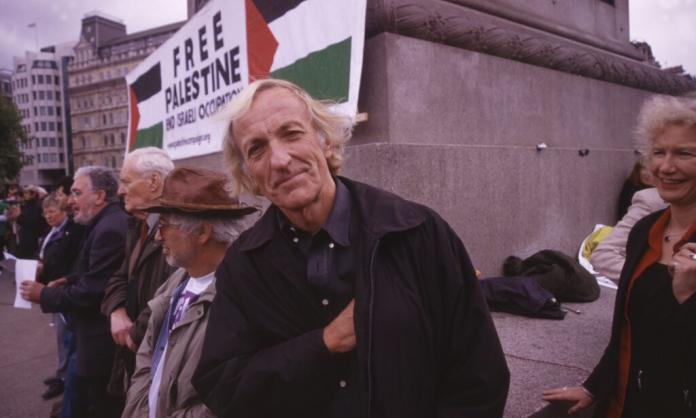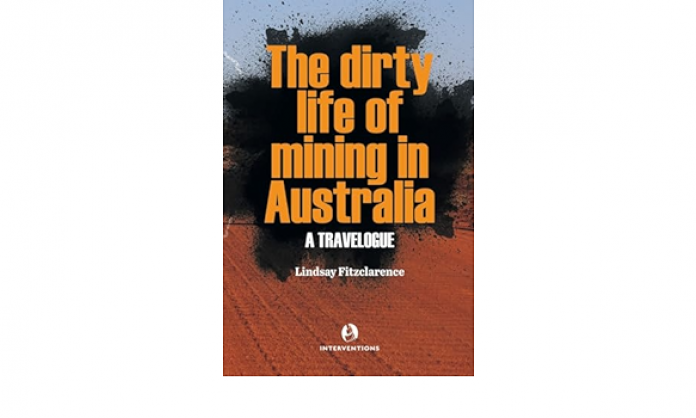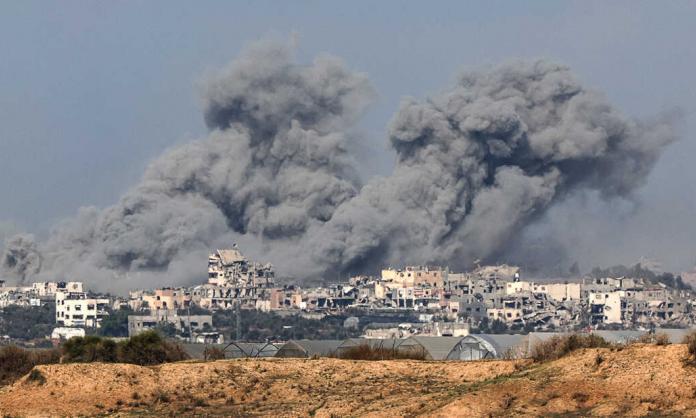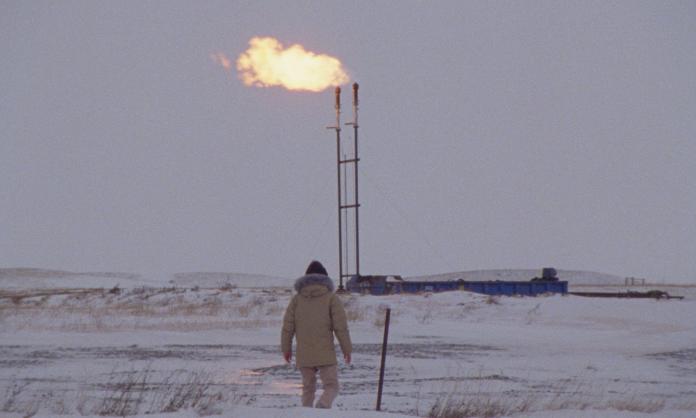John Pilger was a writer, journalist and film maker who pulled no punches. His work was hard hitting and scathing about the rich and powerful, both in Australia and globally. Pilger died in London on 30 December of pulmonary fibrosis, aged 84.
Born in Bondi in 1939, Pilger launched his first newspaper at Sydney High School. After a four-year journalism cadetship with Australian Consolidated Press, Pilger left Australia in the early 1960s and moved to London. There he began his journalism career as a freelance journalist, then joined Reuters before moving to London’s Daily Mirror where he became chief foreign correspondent.
Working for the Mirror, Pilger reported on conflicts and upheavals around the world. He joined the march from Alabama to Washington, following the assassination of Martin Luther King and reported from the front line on Washington’s war on Vietnam. His first documentary, The Quiet Mutiny (1970), made for British television, revealed to the world the open rebellion inside the US army.
In 1978, Pilger returned to Vietnam to make the film Do You Remember Vietnam? It documented the horrors of the US war and the struggles of post-war Vietnam to overcome the destruction it caused: 44 percent of Vietnam’s forests were decimated by bombing and strafing with agent orange, a pesticide that continues to cause deformities in Vietnamese babies to this day.
The following year, Pilger made Year Zero: The Silent Death of Cambodia, which chronicled the rise of the genocidal Khmer Rouge regime. Cambodia’s dictator Pol Pot took power in 1975 following a secret US bombing campaign against the Viet Cong, in which 100,000 tons of ordinance were dropped over the country. The film pointed the finger at Washington, which had removed King Norodom Sihanouk from power and paved the way for the explosion of violence that followed.
Genocide—and the role of imperial powers in fermenting it—was a key theme in much of Pilger’s work. In 1994, he travelled under cover into Indonesian occupied East Timor to make Death of a Nation: The Timor Conspiracy. On his website, Pilger described this film as “the most challenging to my sense of self-preservation and the most inspirational”.
Posing as travel agents, Pilger and director David Munro joined cameraman Max Stahl, who had filmed the bloody Santa Cruz massacre in Timor’s capital Dili three years earlier, to document the genocide that had followed the Indonesian military dictatorship’s 1975 invasion of the country. Pilger and his crew interviewed eyewitnesses who describe the murder of entire villages resisting the Indonesian invasion.
“I had no idea that much of the country was a mass grave, marked by legions of crosses that march all the way from Tata Mai Lau, the highest peak, 10,000 feet above sea level, down to Lake Tacitolu, where there is a crescent of hard, salt sand beneath which lie countless human remains, local people told me”, Pilger notes.
Death of a Nation documents the complicity of Western governments that enabled Timor’s occupation. Australian Prime Minister Gough Whitlam and US President Gerald Ford both met with Indonesia’s dictator General Suharto in the lead up to the invasion. Secret cables revealed than both men, and their ambassadors in Jakarta, gave Suharto the green light for the invasion.
The US and Britain supplied the military hardware to enable the bombing and occupation of Timorese villages, while Australian Army Intelligence Corps trained Indonesia’s elite Kopassus troops. A former CIA officer tells Pilger: “We supplied them with everything they needed [from] MI6 rifles [to] US military logistical support”.
Perhaps the most revealing scene in the film occurred on board an Australian aircraft flying over the Timor Sea in 1989. Two men in suits—Australian foreign minister Gareth Evans and his Indonesian counterpart Ali Alatas—each raise a glass of champagne in a toast.
“This is a uniquely historical moment that is truly, uniquely historical”, babbles Evans.
The two men were celebrating the carve up of the rich oil and gas resources that lie beneath the Timor Sea: a loot long sought by rapacious Australian energy companies. The Timor Gap Treaty was made possible because the Australian government was the only country in the world that formally recognised Indonesia’s annexation of East Timor.
The film made an enormous impact everywhere it was shown, drawing world attention to Timor’s liberation struggle, and bringing new energy to the Timor solidarity movement.
In 1998, Suharto was overthrown by Indonesia’s youthful democracy movement. His successor, Habibi, was forced to concede an independence referendum in East Timor, paving the way for the country to gain independence in 2002.
Pilger made several documentaries about Australia’s own history of genocide and apartheid. These included The Secret Country (1985), The Last Dream (1988), Welcome to Australia (1999) and Utopia (2013). The last of these documented contemporary injustices faced by Aboriginal Australia, including the Howard Liberal government’s 2007 Northern Territory intervention, when the military was sent in to occupy Aboriginal communities, while residents were subjected to paternalistic measures that took away their control over welfare payments and funding for community employment.
Pilger also documented Israel’s brutal war against the Palestinians. In 2002, following the outbreak of the second intifada, he made the film Palestine is still the Issue (he had made a film by the same name in 1977). Pilger travelled into the occupied West Bank to interview Palestinians in the wake of a massacre by Israeli troops in the Jenin refugee camp. The film was a powerful inditement of Western support for apartheid Israel and an important testament to the resolve of Palestinians to resist in the face of enormous adversity.
I had the opportunity to meet Pilger and hear him speak on several occasions. In 2002, Pilger addressed a Green Left Weekly public meeting titled “Breaking the silence: war, propaganda and the new empire”, in Sydney Town Hall. We were pleasantly surprised to sell tickets for every one of the 2,000 seats in the venue (there was no online ticketing back then, we collected cash or manually processed a credit card transaction for each ticket).
Pilger told an enthralled audience about how the US had exploited the tragedy of the 11 September 2001 terror attack on New York’s iconic World Trade Centre to carve out a new imperial role in the Middle East. At this time, the War on Terror was in its infancy.
War and empire were key themes of his films, books, articles and talks over the following two decades. In 2009 and 2010, Pilger was a guest speaker at Socialist Alternative’s annual Marxism Conference, at which he spoke about the US wars in Iraq and Afghanistan and Washington’s failed ambitions for a new American century.
Breaking the Silence: Truth and Lies in the War on Terror (2003) opened with the words: “This film is about the rise and rise of rapacious imperial power and a terrorism that never speaks its name—because it is our terrorism”.
The War on Democracy (2007) chronicled US intervention in Latin America and the social movements challenging neoliberalism across the continent. The War You Don’t See (2010) explored the role of corporate media in shaping propaganda needed to justify imperial intervention, such as the Bush and Blair governments’ baseless claims that Iraqi dictator Saddam Hussein possessed “weapons of mass destruction” that threatened the entire Middle East.
The Coming War on China (2016) examined the Obama administration’s pivot to Asia and, as the title suggests, preparations for a war with its imperial rival, China. It is a prescient film examining the new arms race, a quarter century after the end of the last Cold War.
Pilger won a US TV Academy Award, an Emmy, and a British Academy Award for his documentaries, which have also won numerous US and European awards, such as as the Royal Television Society’s Best Documentary.
However, his greatest contribution was to give voice to the oppressed and build solidarity with their struggles.
In recent years, he was an outspoken campaigner for freedom for Julian Assange, a dissident journalist and publisher imprisoned in Britain’s Belmarsh prison awaiting extradition to the US on treason charges. His engagement with this important campaign sometimes led Pilger to express support to some unsavoury opponents of US imperialism, including the Putin regime.
Nonetheless, Pilger was a tireless campaigner for truth and justice over more than half a century.
Former leader of Britain’s Labour Party Jeremy Corbyn wrote on X that Pilger had given “a voice to the unheard and the occupied: in Australia, Cambodia, Vietnam, Chile, Iraq, East Timor, Palestine and beyond. Thank you for your bravery in pursuit of the truth — it will never be forgotten”.
On 31 December Pilger’s family published a statement on his website stating: “His journalism and documentaries were celebrated around the world, but to his family, he was simply the most amazing and loved dad, grandad and partner”.










